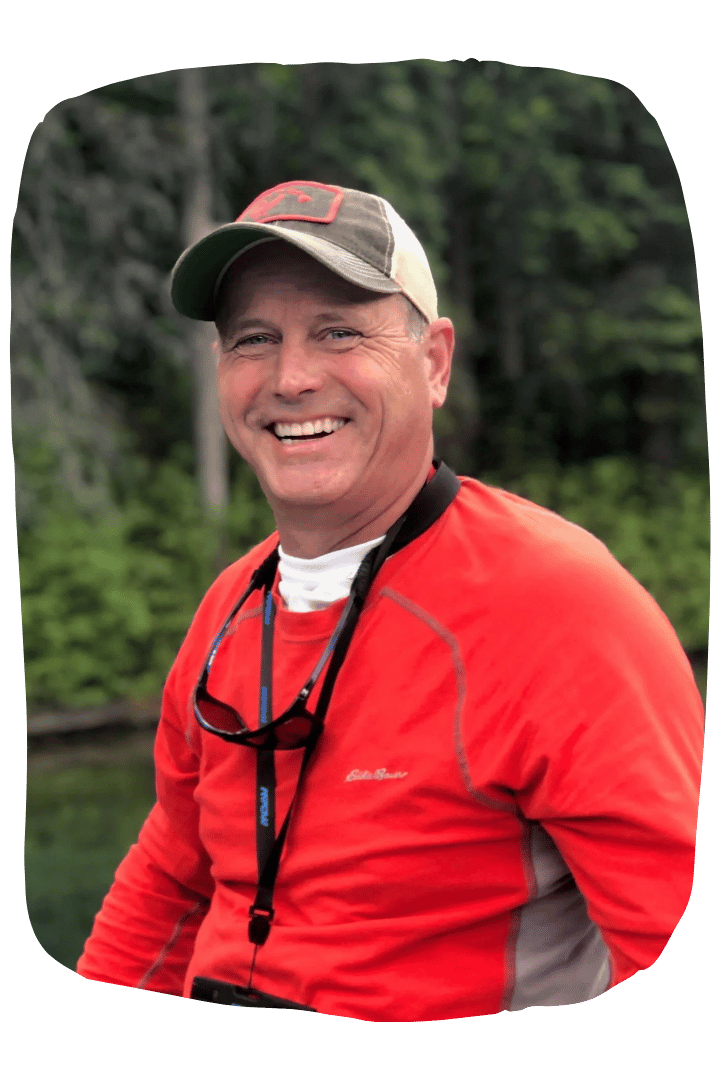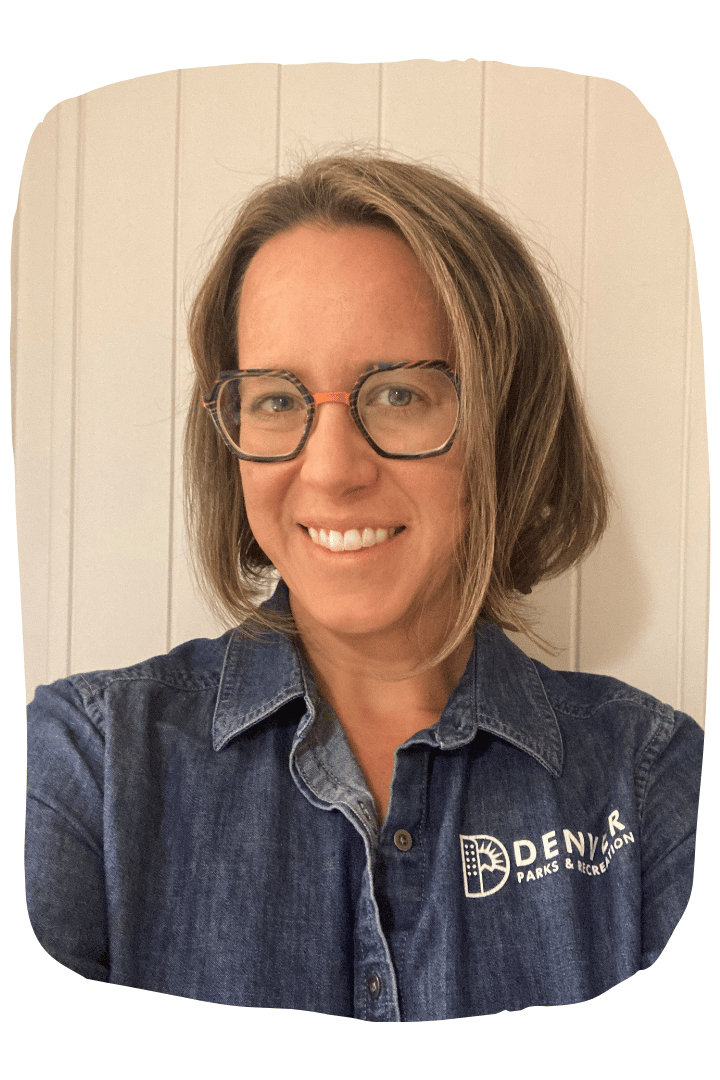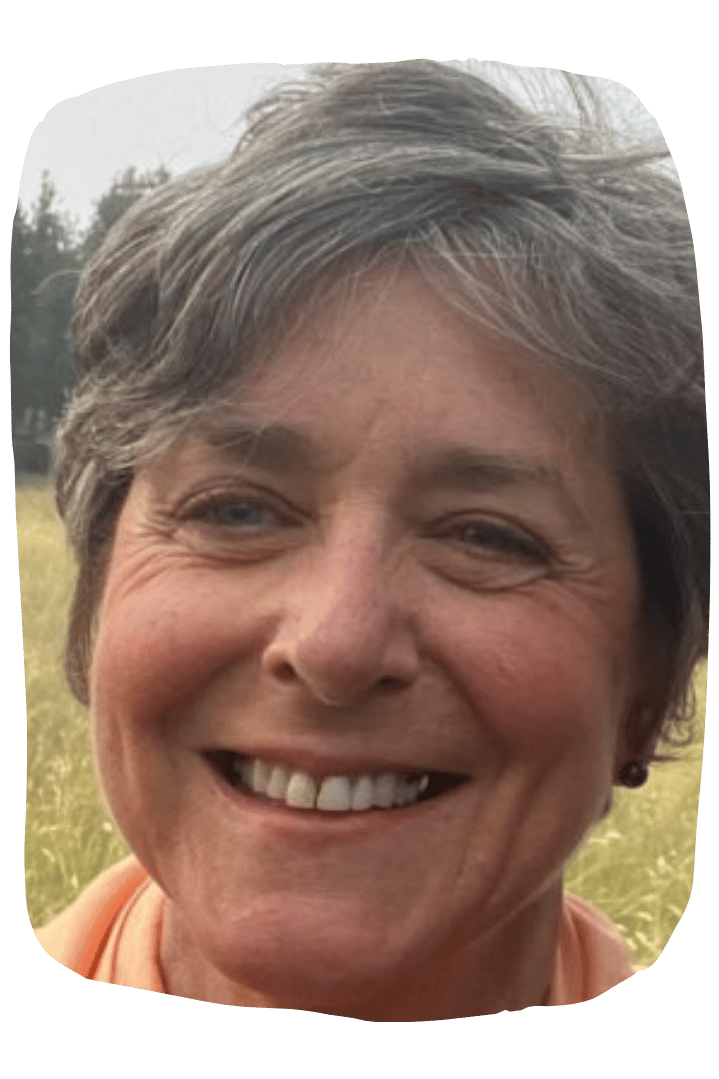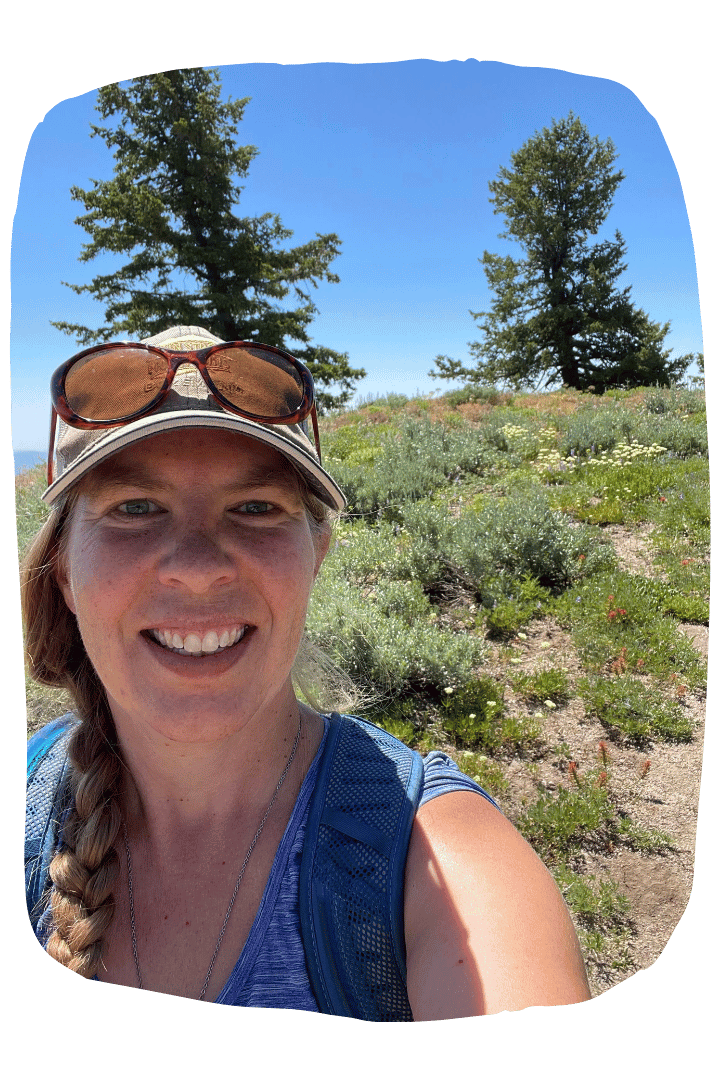
Empowered for Pollinators
10th Annual Colorado Pollinator Summit | November 13th—14th
@ CU Boulder
Watch the Summit
All presentations from the 2025 Summit are available for free on this page and on our YouTube channel, where you’ll also find recordings from the 2020, 2021, 2022, 2023, and 2024 Summits.
Thursday | November 13th
Opening remarks from Dr. Adrian Carper & Setting the Stage with Dr. Nancy J. Stevens, Director CU Museum of Natural History and Brett KenCairn, Senior Policy Advisor for Climate, Sustainability and Resilience, City of Boulder

Session Description:
While honey bees are the poster children for pollinator conservation, pollinators in general are in a bind. We aren't helpless, though. Everyone has the capacity to be a huge help to our bee populations both native and introduced, but first we have to discuss what’s threatening them and why we need to act.
Thursday Keynote: Pollinators: Understaffed, Underpaid, and Underappreciated with Dr. Sam Ramsey
Speaker Bio
Dr. Samuel Ramsey (Dr. Sammy) leads the Boulder Bee Lab as the Endowed Assistant Professor of Entomology at the BioFrontiers Institute at CU Boulder. As an early-career researcher, he has distinguished himself through internationally award-winning research projects and his engaging presentation style. His lab centers the health of social bees with projects focusing on stingless bees, bumble bees, and honey bees. His current international efforts through the United States Department of Agriculture, National Geographic, and his non-profit the Ramsey Research Foundation focus on how pollinator pandemics emerge, how they can be detected quickly, and stopped.
Friday Keynote: Promoting Pollinators through Meaningful Change to Agriculture with Dr. Jonathan Lundgren
Session Description
Regenerative agriculture promises solutions to numerous planetary-scale problems, including pollinator losses. By restoring biodiversity, improving soil health, reestablishing water cycles, and growing healthier plants and food, regenerative agriculture provides a resilient future for farmers. Science can help us to understand the potential of regen systems for accomplishing their mission. Lessons learned from measuring more than 1,700 farms across North America will be presented, and the implications for the pollinator crisis will be discussed.
Speaker Bio
Dr. Lundgren is an agroecologist, Executive Director of Ecdysis Foundation, and CEO for Blue Dasher Farm. Lundgren’s research and education programs are helping applied science evolve in ways that foster the evolution of a regenerative food system. He regularly interacts with the public and farmers around the world regarding ecologically intensive farming and how biodiversity fuels the resilience and productivity of an agroecosystem and rural communities.

Friday Closing Keynote: The Rapid Decline of Butterfly Abundance and Diversity in the United States with Dr. Nick Haddad
Session Description
Over the past two decades, the United States has lost a quarter of butterflies. This includes loss of common species like monarchs and cabbage whites, and rare species on the verge of extinction. We know this from data accumulated by thousands of individuals, and not only scientists, who have done tens of thousands of surveys and recorded millions of butterflies. Solutions to reverse declines are in our grasp, but need to be acted on now.
Speaker Bio
Nick Haddad is co-lead of the Long Term Ecological Research site at Kellogg Biological Station of Michigan State University. He leads decades-long, landscape-scale experiments that bring scientific principles to conservation actions. He studies how landscapes diversity, including prairie strips through croplands, affect biodiversity, especially of plants and insects, and of ecosystem services including pollination, biocontrol, and decomposition. For three decades he has led the world’s largest experiment testing the role of landscape corridors in increasing dispersal of most plant and animal species, and increasing plant diversity. He has conducted long-term restoration experiments to guide conservation of rare butterflies in the face of climate and land use change. Nick brings together ideas in science and management through ConservationCorridor.org. Nick received his BS at Stanford and PhD at University of Georgia.
Gemara Gifford: Culturally Significant Pollinators in Colorado & Beyond
Session Description
To humans, pollinators are important not only because of their ecological and economic contributions, but also because they are regarded as spiritually and culturally significant to many communities. Gemara, a migratory bird scientist and Indigenous scholar, will present some of her ethno-ornithological research in Guatemala, as well as original poetry to offer a cultural perspective of pollinators, rooted in her family’s heritage in Colorado and their symbolism across the Americas.
Speaker Bio
Gemara Gifford (pronounced JEM-uh-ruh) M.S., Ph.D. Candidate, is an Indigenous wildlife scientist with a background in community-based conservation, and rematriation movements in Latin America. Gem draws from her deep roots in Colorado and the Southern Rocky Mountain Region to advocate for environmental justice and Indigenous rights. Gem’s family instilled in her a deep love and responsibility for animals and the environment, and passed on their history as Chicano labor rights organizers from the San Luis Valley and the coal mining camps of Southern Colorado. Gemara is currently pursuing her Doctoral studies at Colorado State University on the pathways and barriers to land rematriation in the Southwestern United States, while also running her small business, Mending Mountains Collective LLC, where she offers services as a facilitator and consultant. On a personal note, Gem is a musician, creative writer, and ceramic artist and lives in Fort Collins, Colorado with her husband and many critters.

Susan Bonfield, Executive Director, Environment for the Americas— Hummingbirds: Nature’s Unsung Pollinators
Session Description
Hummingbirds are among the most remarkable pollinators in the Americas, playing an important role in the reproduction of many native plants. Their long-distance movements and specialized feeding behaviors make them key partners in maintaining healthy ecosystems and supporting plant diversity. Yet, despite their importance, hummingbird populations, like other pollinators, are showing steep declines, due to a variety of factors. This presentation will highlight the ecological significance of hummingbirds as pollinators, explore the factors driving their declines, and discuss how Environment for the Americas and the Western Hummingbird Partnership are working to fill gaps in our knowledge of our smallest birds.
Susan Bonfield
Susan Bonfield is the Executive Director of Environment for the Americas, a Boulder-based non-profit, and has worked internationally in bird conservation for more than three decades. She leads collaborative efforts to protect migratory species and their habitats through research, outreach, education, and training. For the past ten years with support from the USDA Forest Service International Programs, she has facilitated the Western Hummingbird Partnership, bringing together researchers, land managers, and conservationists from Canada, Mexico, and the United States to fill the gaps in knowledge about hummingbirds and the factors that threaten their populations. She holds a Ph.D. from Colorado State University’s Warner College of Natural Resources.
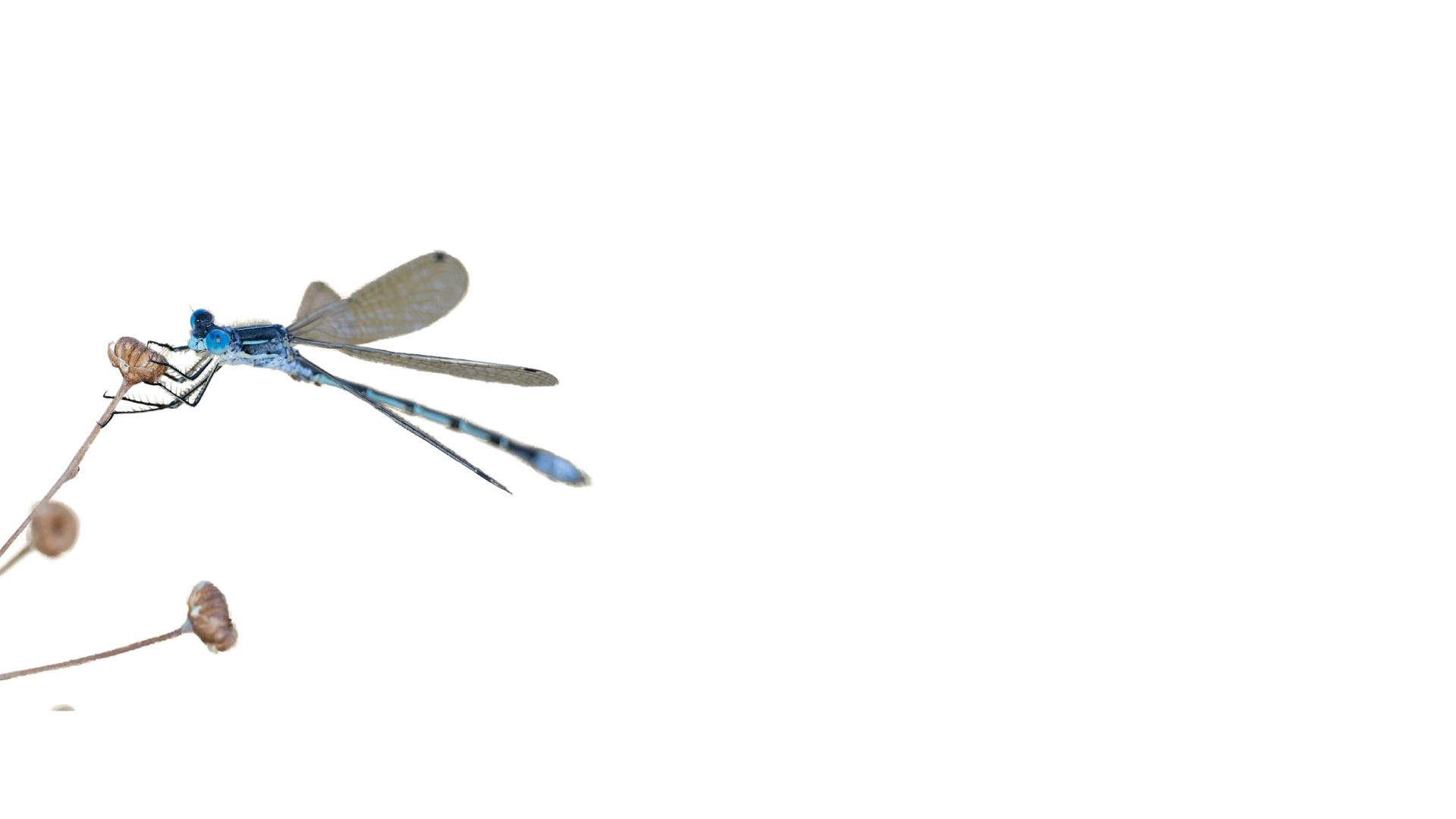
CPN - 10 Years of Action
Session Description
The Colorado Pollinator Network (CPN) emerged as a result of the very first Colorado Pollinator Summit held in 2016. This informal network consists of representatives from a diversity of non-governmental, governmental, professional, and academic organizations, as well as the public, all devoted in some part to addressing concerns over the health, diversity, and resilience of pollinator communities.
Join members of our network as we reflect on the history, status, and future of pollinator conservation and management here in Colorado. We'll review the origins of the summit, discuss the challenges we've faced, and celebrate the successes we've helped achieve, all driven by our community's interest in and passion for pollinators. And, give yourselves a pat on the back, with prizes and appreciations for some of our community members, all to highlight the value of community engagement in pollinator awareness, policy, and action!
Colorado's Fossil Pollinators
Dr. Talia Karim, Senior Collections Manager for Invertebrate Paleontology at the CU Museum of Natural History
Pollinator Short Talks
This talk will present a brief overview of major deposits of fossil insects in the state of Colorado, with a highlight on pollinators and their evolutionary history.
State of the Butterflies in the United States: A Roadmap for Butterfly Conservation in the 21st Century
Kevin Burls, Endangered Species Conservation Biologist, Xerces Society for Invertebrate Conservation
Declines in insect abundance have been documented for various regions and for various insect groups in recent years, but the geographic extent of these declines is still being investigated. Among insect fauna, butterflies have some of the richest and most geographically widespread data available in the United States thanks to long-term single species and multispecies monitoring programs across the country. As part of a US Fish and Wildlife Service (USFWS) - US Geological Survey (USGS) Powell Center Working Group, The Status of Butterflies in the United States evaluated trends in abundance for all butterfly species for which we have adequate data. This analysis, spanning the contiguous U.S., included 35 monitoring programs and over 12.6 million individual butterfly observations. The data were sufficient to analyze national trends in abundance from 2000-2020 for 342 species of the 554 species included in the combined dataset. We also completed regional analyses for species with sufficient data, including for 101 species in the Mountain-Prairie U.S. Fish & Wildlife Service Region, which includes Colorado. Overall, butterflies across the United States are declining at a rate of -1.2% per year, approximately 22% in 20 years. Species with steep declines represent new targets for conservation efforts and reflect the fact that geographically widespread species are vulnerable to multiple threats that can influence population trends over a large area. This talk will summarize the working group analysis and discuss how these findings can complement existing targets of conservation efforts.
The charismatic butterfly - pollinating our crops and gardens, feeding wildlife, and serving as a well-loved ambassador to the natural world - is in decline. From abundant species to rare endemics, butterflies across the U.S. have declined in abundance by 22% between 2000 and 2020. As scientists map out a path to recovery, it is paramount to address pesticides, one of the leading causes of butterfly declines. Urban communities including towns, cities, schools, public parks, and neighborhoods have incredible potential to serve as habitat and contribute to butterfly recovery, but this habitat must be protected from pesticides. New research examined pesticide contamination on butterfly host plants in two major U.S. cities: Albuquerque, NM and Sacramento, CA. This research found that pesticide contamination was nearly ubiquitous, with some residues exceeding levels known to kill or otherwise harm butterflies and moths. This work underscores that we must address urban pesticide contamination in butterfly recovery efforts, and many local communities are already making great progress.
Helping Butterfly Conservation Take Flight: Addressing Urban Pesticide Contamination
Jaqueline Buenrostro of Xerces Society for Invertebrate Conservation

Dr. Rick Adams: Carpe Noctem: The Wonderful World of Bats
Session Description
Bats are one of the most unique mammals on Earth. Not only are they the only flying taxon but they also have an extremely sophisticated echolocation system for hunting prey and navigating in total darkness. Bats are second most diverse Order of Mammals with more than 1,450 species dispersed among every continent, except antarctica, where they provide critical ecosystem functions that support healthy and vibrant food webs. As nocturnal predators they consume large numbers of insects that protect forest and croplands as well as reduce the spread of zoonotic diseases such as West Nile Virus and Malaria.
In North America, insectivorous bats are the only significant consumers of nocturnal insects thereby controlling their populations that would otherwise wreak havoc on ecosystems. In the U.S. alone, insect eating bats save our economy at least $57 billion annually by reducing agricultural crop damage. Bats are also primary pollinators for iconic and keystone cacti species such as saguaro and organ pipe of the desert southwest as well as agave plants that alone bring $3.6 billion to Mexico’s economy yearly. In the tropics, bats pollinate and disperse the seeds of more than 600 plant species critical in supporting tropical food webs and humans alike. Come learn about the unique anatomy, physiology, behavior, evolution, and ecology of bats that make them one of the most enigmatic groups of animals in nature.
Dr. Rick Adams
Rick Adams is Professor Emeritus at the University of Northern Colorado in Greeley, Colorado. Since 1984 his research encompasses Ecology, Evolution, and Conservation of bats in Colorado, Wyoming, Caribbean Islands, Belize, South Africa, Botswana, and Namibia as well as in Sichuan Province, China. He is also President and Founder of the Colorado Bat Society that works to educate the public on the importance of bats and to protect bats and their habitats in Colorado and beyond. Dr. Adams is the recipient of the Winchester Award for Distinguished Academic Scholarship, Faculty Mentor of the Year at the Graduate Level, College Excellence in Scholarship Award, and several teaching awards at the University of Northern Colorado. He was also awarded the 2003 Colorado Book Award by the Colorado Center for the Book as well as the Southwest Books of the Year for Bats of the Rocky Mountain West, first edition. A 2nd edition of Bats of the Rocky Mountain West was published in July 2025
Lena Freij, Natural Resources Defense Council — Neonics in Colorado
Session Description
This session will explain the science behind the threats posed by neonicotinoid pesticides, aka “neonics,” to pollinators, biodiversity, and our own health, as well as neonics’ surprising prevalence in our environment. These popular pesticides contaminate soil, water, and plant life on a nearly unprecedented scale, raising alarm bells for wildlife, clean water, and human health..
Speaker Bio
Lena Freij is an Attorney and Policy Advocate at the Natural Resources Defense Council (NRDC) where she works to reduce or eliminate the use of pesticides that are harmful to human health and wildlife. Prior to joining NRDC, Lena was the Honors Attorney Fellow at EPA Region 10, where she brought administrative enforcement actions against violators of air, waste, pesticide, and toxics statutes. Lena holds a bachelor's degree in environmental science and policy from California State University, Long Beach and earned her JD from UCLA Law School.
Friday Short Talks
An Introduction to the Lesser-Known Butterflies of Colorado with Christian Nunes, City of Boulder
Session Description
Colorado is renowned for its butterfly diversity. The variety of habitats and life zones support approximately 288 species. This number is bound to grow, with phylogenetic research clarifying the taxonomic status of many populations, and natural immigration accounting for new records at the periphery of the state. However, some species are disappearing, imperiled by urbanization, land use changes, invasive species, and climate change. The inclusion of invertebrates under the State Wildlife Action Plan has provided an opportunity to assess the status and conservation needs of Colorado’s butterfly fauna. Some declining species, like the Monarch butterfly, are well known to most Coloradans. But there are dozens of rare, poorly studied, and overlooked species that, until now, have lacked a voice in the conservation conversation. Come learn about the life history of some of these fascinating pollinators like the Orange-headed Roadside-Skipper, Regal Fritillary, and the Rocky Mountain Jutta Arctic.
Speaker Bio
Christian Nunes is a Wildlife Ecologist for the City of Boulder Open Space and Mountain Parks Department. His professional work focuses on monitoring a variety of wildlife species across the city's 45,000-acre open space system. He helps run the city's Raptor Monitoring Program and performs long-term grassland and forest bird monitoring surveys. He also works to maintain and improve functioning ecosystems for a variety of conservation targets such as the black-tailed prairie dog, bobolink, northern leopard frog, Preble's meadow jumping mouse, and the Townsend's big-eared bat. His work with pollinators includes the inventory and monitoring of butterfly populations found on Boulder’s open spaces.
Assessing Diurnal Pollinator Diversity on Western Colorado Public Lands: A focus on bees (Hymenoptera: Apoidea) with Francisco Garcia Bulle Bueno, Butterfly Pavilion
Session Description
Invertebrates make up 97% of animal life and are essential pollinators yet remain poorly studied compared to vertebrates. To address this gap, we surveyed diurnal pollinator communities across 63 Bureau of Land Management (BLM) sites in western Colorado from June–August 2024. Using both passive (blue vane and pan traps) and active (netting) methods, we collected over 4,000 bee specimens representing 36 genera, with Halictidae comprising nearly 60% of captures. Netting and blue vane traps proved most effective for bee sampling. Floral association data highlighted strong links with Asteraceae, Fabaceae, and Malvaceae. Notably, we documented species of conservation concern, including Bombus occidentalis and Perdita beatula. Diversity and abundance patterns varied by habitat type and elevation, with higher elevations showing reduced richness and evenness. This study provides the first regional baseline of bee biodiversity and plant–pollinator interactions on Colorado’s BLM lands, offering critical insights to guide future monitoring and conservation strategies.
Speaker Bio
Francisco Garcia Bulle Bueno is the Director of Research and Conservation at Butterfly Pavilion. A bee specialist, his PhD research advanced understanding of stingless bee queen development, colony dynamics, and pollination, resulting in over five peer-reviewed publications that are shaping meliponiculture (stingless bee keeping) and pollinator conservation. He leads national and international projects, from native bee and firefly monitoring in Colorado to honeybee-based elephant deterrents in Tanzania, stingless bee management and conservation in the Ecuadorian Amazon, and butterfly conservation in Mongolia. Passionate about science communication, Francisco has extensive experience designing environmental education programs that foster community engagement. He excels at building strong, cross-cultural collaborations with international teams—including Indigenous groups, researchers, and conservation partners—and has a strong track record of securing grants and funding. His ability to align diverse stakeholders around shared goals ensures that projects are impactful, inclusive, and sustainable.
Friday | November 14th
Closing remarks from Dr. Adrian Carper

Friday Collaborative Concurruent Sessions (Not recorded)
Transforming Spaces for Pollinators
Creating habitat for pollinators, whether in small spaces or large, can be best achieved by adding or enhancing the diversity of native plants in that space. A “Field of Dreams” can become possible when planting and seeding efforts are successful, as when you grow them, they (pollinators) will come. However, being successful in restoring and transforming spaces with native plants can be challenging, and there are a number of factors that may work in the opposite direction of your dreams.
This collaborative session will bring together a panel of experts with experience helping (empowering) others with the knowledge and skills to create and maintain native plant habitats—both big and small. Whether you’ve been there and done it, or are just starting to dream, join this session to hear advice from the panelists who have “been there” and then engage in conversation about how to deal with challenges common to Colorado and our conditions. Topics such as site preparation, seed and plant selection, weed management, and maintenance will be covered. Hopefully, you will take away ideas and actions that may empower your contributions to pollinator habitats.
Facilitator: Steve Armstead, Xerces Society for Invertebrate Conservation
Trent Verquer, Habitat Team, Colorado Parks & Wildlife
Dr. Maggie Gaddis, Executive Director, Colorado Native Plant Society
Curtis Manning, Founder, Meadow Pro
Jim Tolstrup, Executive Director, High Plains Environmental Center
Beth Lewis, Meadow Pro
Friday Collaborative Concurruent Sessions (Not recorded)
City-Level Pollinator Habitat & Policy Work
Across Colorado, municipalities are implementing policies and programs to promote sustainability, resilience, and landscape transformation, from native plant ordinances and nonfunctional turf reduction to wildfire mitigation and water conservation. While these initiatives aren’t always framed around pollinator conservation, they can have significant impacts, positive or negative, on pollinator habitat and biodiversity. This panel brings together representatives from Fort Collins, Denver, Boulder, and Colorado Springs to explore how municipal-level policies can be leveraged to benefit pollinators and native ecosystems.
Facilitator: Deryn Davidson, Sustainable Landscape State Specialist, CSU Extension
Clint Anders, Fort Collins, PLA, Environmental Planner, City of Fort Collins
Lauren Freels, Sustainability Senior Program Manager, Nature-Based Solutions, City of Boulder
Michelle Teller, Principal Planner, City & County of Denver
Catherine Moravec, Water Conservation Lead, Colorado Springs Utilities
Jessica Andersen, Denver, Denver Parks & Recreation, Urban Ecology Supervisor, City & County of Denver

Friday Collaborative Concurruent Sessions (Not recorded)
Community Science & Pollinator Conservation
Community Science is a collaborative research approach where local people actively participate in collecting data for scientific projects, often in support of conservation efforts that could not be accomplished without widespread involvement. The approach raises public awareness of conservation issues, empowers people to explore their own environment, and builds trust between the public and scientific institutions. Although community science dates back centuries, it has seen a boon in recent decades due to the advent of the internet and smartphones.
This session brings together practitioners experienced in pollinator community science initiatives ranging from censusing and habitat monitoring to migration tracking. The panel will share important outcomes from their projects, implications for conservation, and insights on the power of collaboration, volunteer recruiting, training, data validity, and more. Join the conversation and see how you can participate in a project in support of pollinator conservation, expand your current involvement, or start a project of your own.
Facilitator: Liz Goehring, Ecologist & Monarch Conservation Advocate, Colorado Monarch Ambassadors
Donovan Spaulding, Biological Monitoring Coordinator, Resource Stewardship, Colorado Parks & Wildlife
Amy Dolan, Endangered Species Conservation Biologist w/ Xerces Society for Invertebrate Conservation, Coordinator of the Mountain States Bumble Bee Atlas
Susan Bonfield, Executive Director, Environment for the Americas
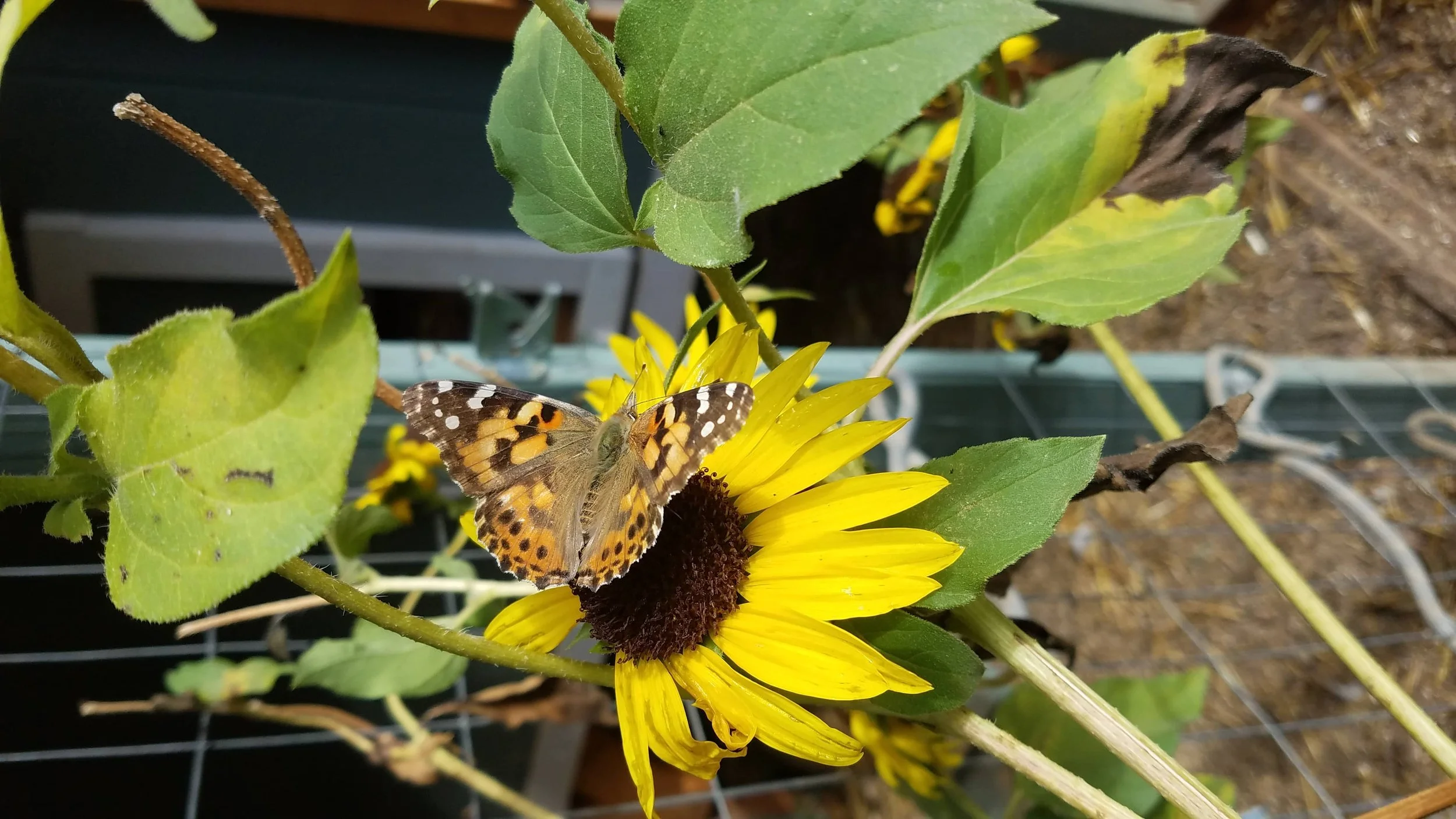
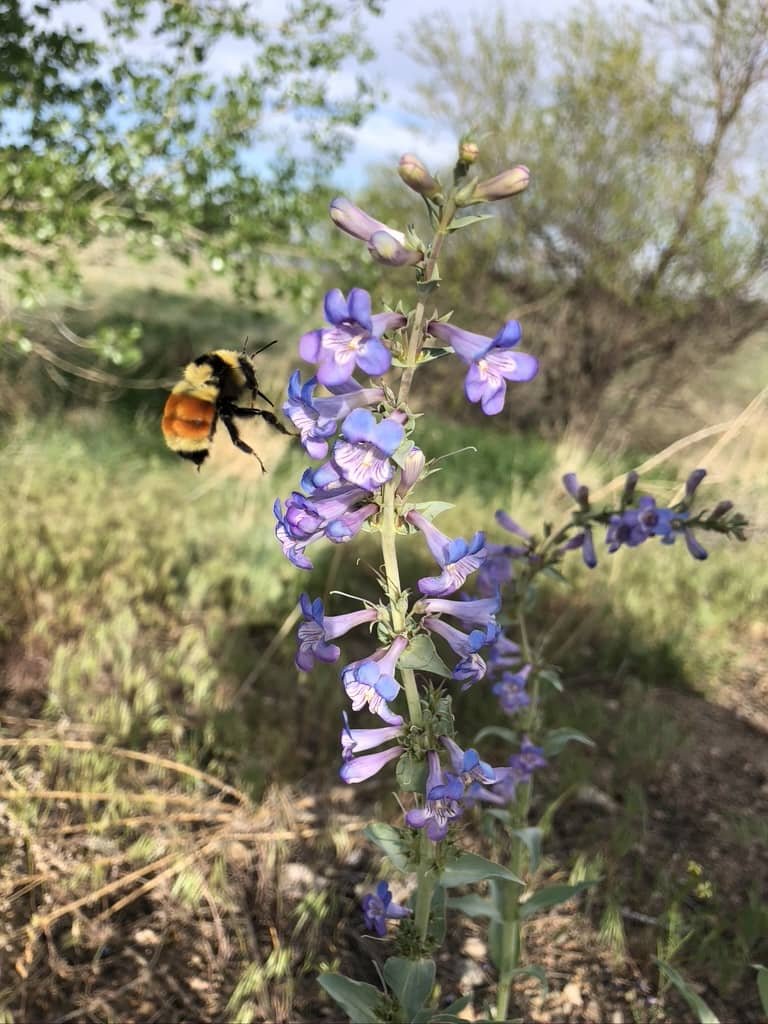



Thank you to our 2025 Summit Sponsors!
Diamond 2025 Sponsor
Premier 2025 Sponsor
Platinum 2025 Sponsors
Gold 2025 Sponsors
Silver 2025 Sponsors
Bronze 2025 Sponsors
2025 Pollinator Friends










